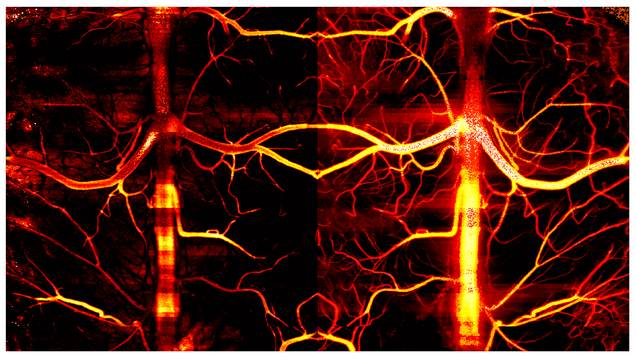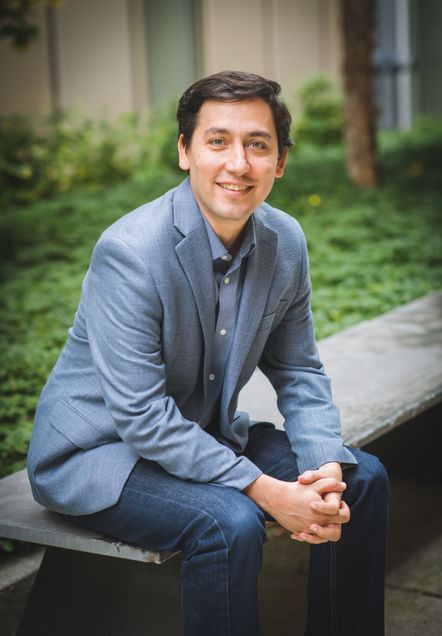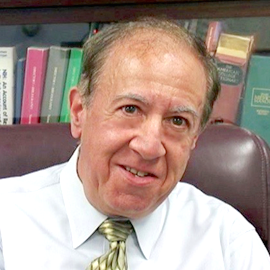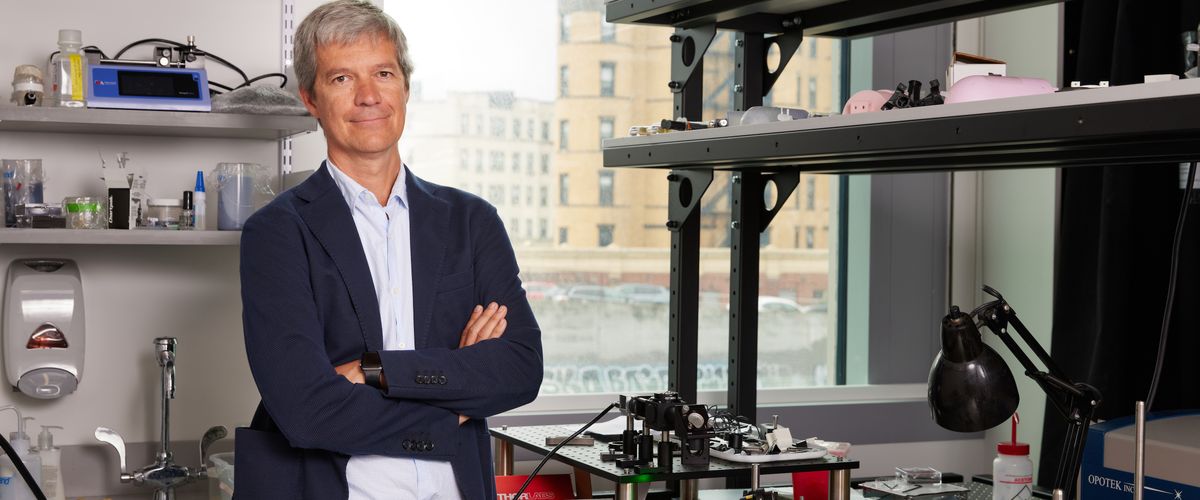David Boas to Deliver Annual DeLisi Lecture
To recognize their contributions to engineering and society, Arthur G. B. Metcalf Endowed Chair and Distinguished Professor David Boas (BME, ECE) is the recipient of the 2023 Charles DeLisi Award and Lecture, while Assistant Professor Hadi Nia (BME, MSE) has earned this year’s Early Career Research Excellence Award.
The Charles DeLisi Award and Lecture recognizes researchers with extraordinary records of well-cited scholarship, senior leaders in industry, and inventors of transformative technologies. The event gives each year’s recipient a forum to discuss their work before the Boston University academic community and the general public.
Boas, who is director of the BU Neurophotonics Center, will present the Charles DeLisi Distinguished Lecture, “Illuminating the Functioning Brain to Reveal the Role of Blood Flow,” on Tuesday, April 11, 2023, at 4 p.m., in the Photonics Colloquium Room, 8 St. Mary’s Street, 9th floor, room 906. A reception will follow.

A pioneer in biomedical optics, Boas joined the BU faculty in 2017. At the Neurophotonics Center, the first of its kind in the nation, Boas leads teams using light to study the workings of the brain. His research bridges neuroengineering and neuroscience with photonics, imaging science, computation, and data science to vastly improve our understanding of brain structure and function and to produce life-changing clinical diagnostics and therapies. Over the past two decades, he has developed a wearable brain imaging system called functional near-infrared spectroscopy (fNIRS), which he and colleagues are adapting for neuroimaging applications in the rehabilitative, clinical, and cognitive sciences.
An elected fellow of the Optical Society of America, the Society of Photonics in Industry and Engineering, and the American Institute of Medical and Biological Engineering, Boas is the founding president of the Society for Functional Near Infrared Spectroscopy and the founding editor-in-chief of the journal Neurophotonics. He has supervised more than 50 students and post-doctoral fellows, and has published more than 300 papers that have received over 50,000 citations and an h-index of 121.
Boas was awarded the Britton Chance Award in Biomedical Optics in 2016 for his development of several novel, high-impact biomedical optical technologies in the neurosciences, as well as following through with impactful application studies, and fostering the widespread adoption of these technologies. He received his bachelor’s degree in physics at Rensselaer Polytechnic Institute and his doctorate in physics at the University of Pennsylvania.
Early Career Research Excellence Award

Nia joined the BU faculty in 2019. He has built a high-impact research program that combines principles of engineering and physical sciences with molecular biology to answer key questions in cancer and pulmonary pathophysiology. Nia has also published groundbreaking work on probing the tumor microenvironment and has been at the forefront of research in developing technologies for visualizing lung pathophysiology in a functioning lung, in real-time, and at the cellular through whole organ scales.
Nia received the National Institutes of Health Director’s New Innovator Award (given to only 72 awardees in the entire NIH community), a National Institute of Biomedical Imaging and Bioengineering Trailblazer Award, and a Beckman Foundation Young Investigator Award, among other honors. His work has received over 2,600 citations. In addition, Nia has excelled as an educator, bringing new in-class demos and examples to teach undergraduate and K–12 students transport phenomena and fluid mechanics.

The DeLisi Award was named for Dean Emeritus and Metcalf Professor of Science and Engineering Charles DeLisi (BME). Widely considered the father of the Human Genome Project, DeLisi was an early pioneer in computational molecular biology, and he made seminal contributions to theoretical and mathematical immunology. He continues to direct the Biomolecular Systems Laboratory, where more than 100 undergraduate, graduate, and post-doctoral students have trained.
As dean of the BU College of Engineering from 1990 to 2000, DeLisi recruited leading researchers in biomedical, manufacturing, aerospace and mechanical engineering, photonics and other engineering fields, establishing a research infrastructure that ultimately propelled the college into the top ranks of engineering graduate programs. In 1999 he founded—and then chaired for more than a decade—BU’s Bioinformatics Program, the first such program in the nation.
